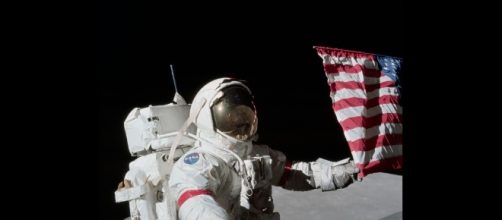Gene Cernan, the last moonwalker, has died at the age of 82. Cernan is most famous for having commanded the mission of Apollo 17, the last mission that carried human beings to the lunar surface in December 1972. He was also on the lunar orbital mission of Apollo 10 and the Earth orbit flight of Gemini 9. Previous to Cernan’s NASA career he served as a Navy aviator. He retired as a Captain.
Cernan’s mission to the moon was bitter sweet, it being the last of the Apollo missions with many of the people who launched his spacecraft already having gotten their pink slips.
His and Harrison Schmitt’s sojourn at the Taurus-Littrow Valley was the most productive, scientifically, of the Apollo missions. The two astronauts conducted three EVAs, ranging wide, collecting geological samples and deploying experiments.
Cernan also spoke the last words to have been spoken on the moon, thus far. “And, as we leave the Moon at Taurus–Littrow, we leave as we came and, God willing, as we shall return, with peace and hope for all mankind. Godspeed the crew of Apollo 17.”
The promise in those words, of a lunar return, has thus far been unfulfilled, nearly 45 years later.
Toward the end of his life, Cernan joined with to fellow Apollo astronauts, Neil Armstrong, the first man to walk on the moon.
and Jim Lovell, the commander of Apollo 13, to protest President Barack Obama’s decision to cancel the Constellation program that would have returned Americans to the moon by the end of the decade. Cernan and Armstrong made compelling testimony before Congress in opposition to the decision that many, especially in retrospect, found to be ill considered and ill advised. Cernan’s status as the last moonwalker gave him unassailable authority as an opponent of the cancellation.
With a new administration coming to power in a few days of this writing, indications are that a return to the moon will be back on NASA’s manifest, likely with commercial partners. Sadly, Cernan, like Neil Armstrong and a number of other Apollo moonwalkers, will not be around to greet the next moonwalker whenever he – or she – returns from the lunar surface.

